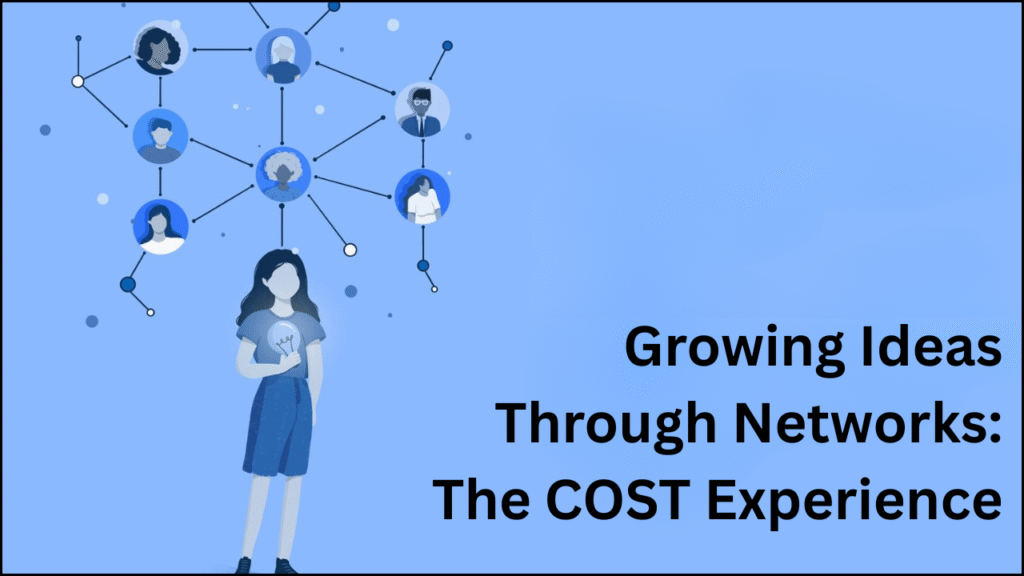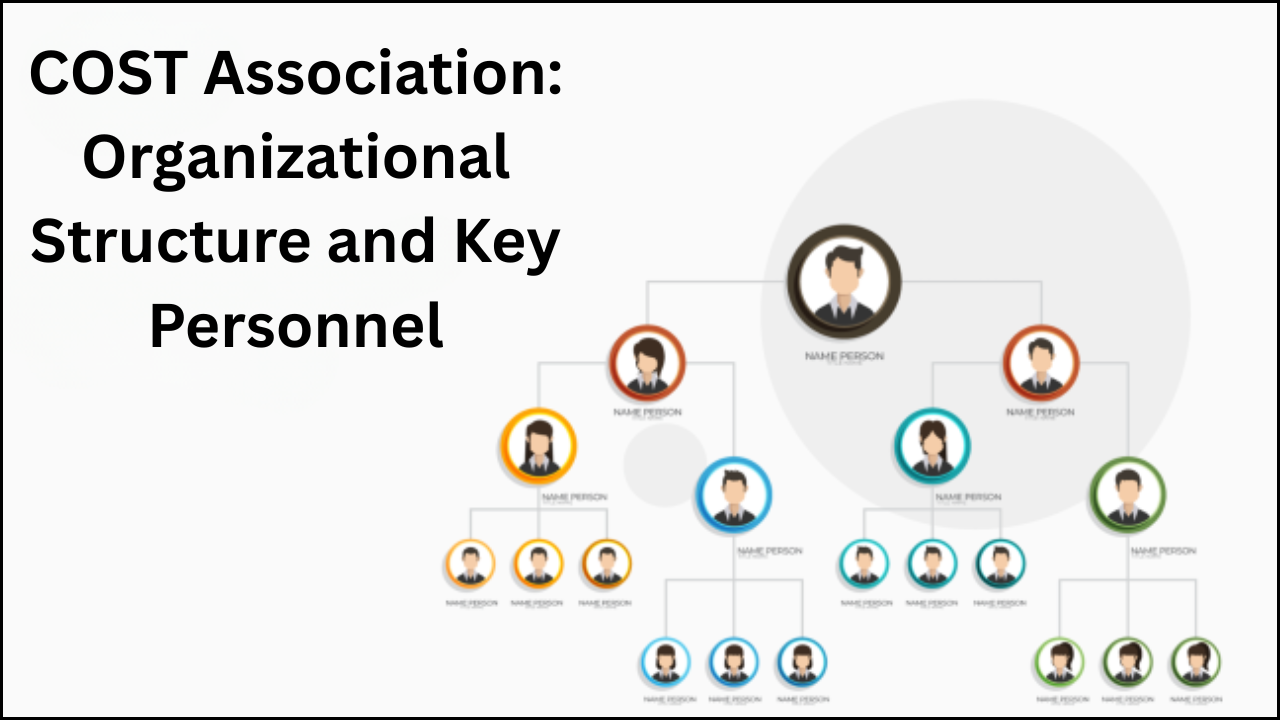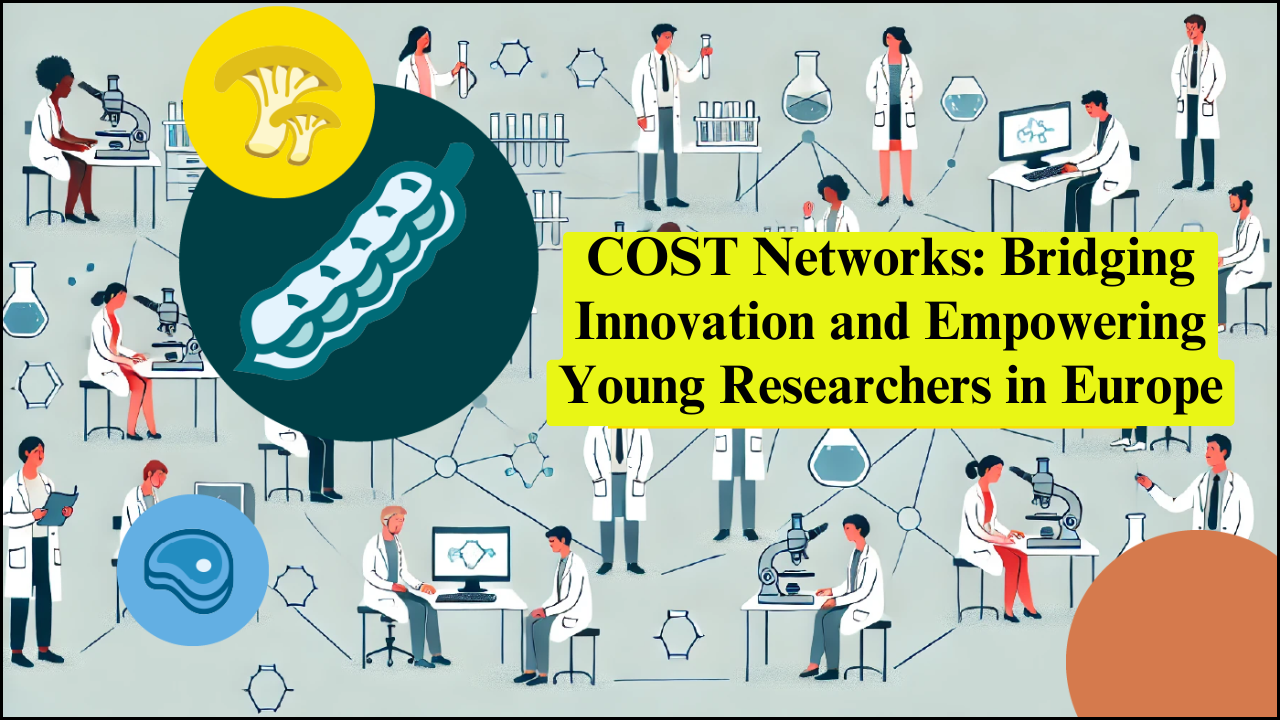
The European Cooperation in Science and Technology (COST) represents a unique model of research collaboration, emphasising the power of networks to advance scientific knowledge and innovation. Networks under COST, known as COST Actions, offer researchers a collaborative platform across Europe and beyond. COST’s approach promotes interdisciplinary engagement, inclusivity, and open participation, fostering innovation by connecting researchers from diverse backgrounds and sectors.
Table of Contents
COST Overview
- Purpose of COST Actions: Facilitate collaboration among scientists in Europe and internationally to stimulate research advancements.
- Bottom-Up Approach: Researchers initiate networks based on their interests and submit proposals through the COST Open Call.
- Interdisciplinary Focus: COST Actions span all scientific domains, integrating multiple stakeholders, including academia, the private sector, policymakers, and civil society.
- Duration and Growth: Actions typically last four years and remain open for new participants to join during the funding period.
- Funding Scope: COST funding complements national research funds and covers workshops, conferences, working group meetings, training schools, short-term scientific missions, and dissemination activities.
- Inclusiveness: Active involvement of researchers from less research-intensive COST Countries (ITCs) is encouraged, along with participation from Near Neighbour Countries (NNCs) and International Partner Countries (IPCs) based on mutual benefit.
COST Governance Structure
The governance of COST ensures efficient management, strategic planning, and transparency in the implementation of research networks.
- COST Members: 41 Members and 1 Cooperating Member (Israel), enabling broad participation beyond the EU.
- COST Association: An international non-profit based in Brussels, integrating governance, management, and implementation functions.
- Decision-Making Bodies:
- General Assembly of Members
- Committee of Senior Officials (CSO)
- Executive Board
- COST Ministerial Conferences (held every five years)
- National Coordination: Each Member nominates a COST National Coordinator (CNC).
- Scientific Oversight: The COST Scientific Committee (SC) advises on Open Call quality and procedures.
- Key Leadership:
- President: Prof. Salvatore Grimaldi
- Vice-President: Prof. Zoran Popovski
- Director: Dr. Ronald de Bruin
COST Governance Overview
| Governance Element | Function |
|---|---|
| COST Members | Participate in decision-making and network support |
| Cooperating Member | Special participation from Israel |
| COST Association | Implements Open Call, manages networks |
| General Assembly | Highest decision-making body |
| Committee of Senior Officials | Advises on strategic policy |
| Executive Board | Oversees operational decisions |
| COST Ministerial Conferences | Gather national government support every five years |
| COST National Coordinators (CNC) | Coordinate national participation |
| Scientific Committee (SC) | Advises on scientific quality and procedures |
COST Historical Milestones
The inception of COST in November 1971 marked a transformative approach to scientific cooperation in Europe.
- Founding Event: Ministerial Conference, 22–23 November 1971, with 19 countries signing the General Resolution.
- First COST Actions: Launch of seven initial networks to address key scientific challenges.
- Pioneering Role: First European programme supporting pilot-stage experimental cooperation in science and technology.
- Impact over 50 Years: More than 500,000 researchers have participated in COST networking activities, fostering innovation and cross-border collaboration.
Key Historical Facts of COST
| Year | Event |
|---|---|
| 1971 | COST established with 19 countries; first 7 COST Actions launched |
| 1971–1980 | Early expansion of experimental scientific and technological cooperation |
| 1980–2000 | Network growth across Europe, inclusion of new scientific disciplines |
| 2000–2020 | Integration with EU Research Framework Programmes (Horizon 2020) |
| 2021 | Celebration of 50 years of COST; more than 500,000 researchers involved |
COST Funding and Activities
COST funding is dedicated to promoting collaboration rather than covering direct research costs, ensuring wide accessibility and networking opportunities.
- Workshops and Conferences: Facilitate knowledge exchange and collaboration.
- Working Group Meetings: Encourage progress monitoring and strategic planning within Actions.
- Training Schools: Develop skills among early-stage researchers.
- Short-Term Scientific Missions (STSMs): Promote researcher mobility and collaboration between institutions.
- Dissemination and Communication: Ensure research outcomes are shared widely, including with stakeholders beyond academia.
Inclusiveness and International Collaboration
COST strongly emphasises inclusivity and global networking:
- Inclusiveness Target Countries (ITCs): Priority participation for researchers from less research-intensive regions.
- Near Neighbour Countries (NNCs): Collaborative opportunities with countries bordering Europe.
- International Partner Countries (IPCs): Participation based on mutual benefit, expanding COST’s global influence.
COST Inclusiveness and Collaboration
| Participant Type | Participation Scope |
|---|---|
| ITCs | Active involvement to promote scientific equity |
| NNCs | Collaboration to strengthen regional networks |
| IPCs | Global partnerships based on mutual benefit |
| Academia & Industry | Multi-stakeholder involvement enhances interdisciplinary research |
Joining a COST Action
Participation in COST Actions is flexible and accessible:
- Researchers can submit proposals through the COST Open Call in any science field.
- Ongoing Actions remain open, allowing new members to join throughout the four-year funding period.
- Multi-stakeholder participation encourages integration of private sector expertise, policy insights, and societal engagement.
Steps to Join a COST Action
| Step | Description |
|---|---|
| Proposal Submission | Researchers submit project ideas through the Open Call |
| Evaluation and Approval | Scientific Committee evaluates quality and relevance |
| Network Formation | Approved proposals become COST Actions |
| Membership Expansion | New participants can join ongoing Actions |
| Activity Implementation | Workshops, meetings, training, and short-term missions |
COST Publications and Resources
COST maintains extensive documentation and outreach to support its community:
- Annual Reports (2020–2024)
- “Growing Ideas Through Networks” brochure
- Video resources on why to join a COST Action
- Publications celebrating 50 years of research networks
- Statutes and internal rules of the COST Association
Impact of COST on Research and Innovation
COST’s networking model has produced measurable impacts on research output, innovation, and interdisciplinary collaboration:
- Research Advancement: Facilitates idea exchange across countries and disciplines.
- Innovation Promotion: Supports pilot projects and early-stage experimental cooperation.
- Capacity Building: Offers training and mobility opportunities for young researchers.
- Global Collaboration: Strengthens Europe’s position in international research networks.
The Bottom Line
Networking in science and technology remains critical for innovation and knowledge growth. COST demonstrates that structured collaboration, inclusive participation, and sustained funding can create long-term impact across Europe and globally. The organisation’s 50-year legacy underscores the effectiveness of bringing researchers together, fostering interdisciplinary cooperation, and opening opportunities for diverse stakeholders. COST Actions not only advance scientific research but also build a resilient, connected research community capable of addressing contemporary global challenges.





